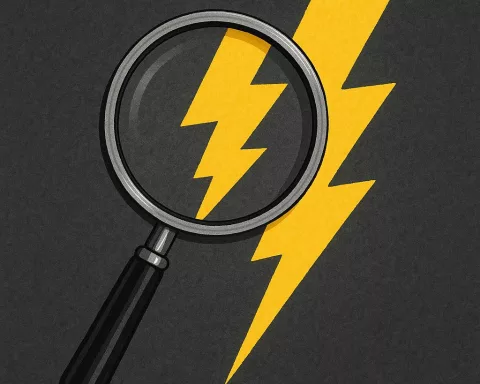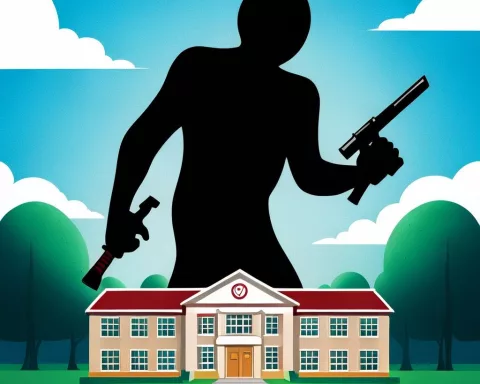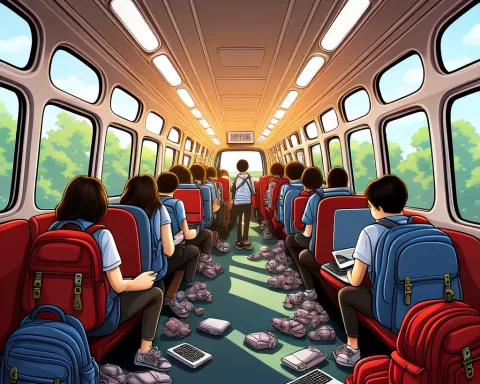South Africa’s National Student Financial Aid Scheme (NSFAS) faces a financial dilemma that could leave over 87,000 university students without financial support due to a proposed 10% budget cut by the National Treasury. This could result in increased student protests and a decline in funding, affecting the sector. Universities and TVET colleges already face a massive funding deficit, with NSFAS collaborating with student unions and universities to tackle the defunding and disburse outstanding payments. While the financial future looks turbulent, all stakeholders are working towards sustainable solutions for the students.
A Financial Crisis in Higher Education
South Africa’s National Student Financial Aid Scheme (NSFAS) is faced with a looming financial crisis that could lead to the withdrawal of financial support for over 87,000 university students. The NSFAS has received 205,752 financial aid applications, but the proposed 10% budget cut by the National Treasury could leave thousands of students without financial support. The impact of the budget cuts is already evident, with universities and TVET colleges facing a massive funding deficit. NSFAS is collaborating with student unions and universities to tackle the defunding and disburse outstanding payments.
A Financial Crisis in Higher Education
South Africa’s National Student Financial Aid Scheme (NSFAS) is faced with a financial dilemma that may lead to the withdrawal of financial support for over 87,000 university students. This alarming development was disclosed by Masile Ramorwesi, the acting CEO of NSFAS, during a briefing to the Parliamentary Portfolio Committee on Higher Education. The news paints an ominous scenario for many students who rely on this funding for their education.
Ramorwesi states that the average cost per student for the 2024 and 2025 academic years are projected to be R63,935 and R67,199 respectively. With the National Treasury’s Medium Term Budget Policy Statement (MTBPS) proposing a 10% cut in university funding, an estimated 87,712 students could find themselves without financial support in the academic period of 2024. This figure could escalate to 120,976 students in the 2024/25 academic year.
The NSFAS began processing financial aid applications on November 21, and so far it has received 205,752 applications. The deadline for applications is January 31. The NSFAS’s estimated budget for universities for the 2024/25 and 2025/26 fiscal periods are R41.9-billion and R43.7-billion respectively.
The Ripple Effects of the Budget Cuts
The impact of the projected 10% budget cut from the Treasury is daunting to consider. Universities face a funding deficit of R5.5-billion for 2024/25 and R8.1-billion in 2025/26. Technical Vocational Education and Training (TVET) colleges may need to cut back by R970-million in 2024/25 and R1-billion in the 2025/26 fiscal year.
The implications of these budget cuts are already evident. Ramorwesi anticipates increased student protests due to a decline in funding and limited bridging finance options. This could significantly impact the sector as NSFAS may face difficulties in addressing students’ financial needs promptly.
The distribution of university accommodations is another source of concern as highlighted by Dr. Phethiwe Matutu, CEO of Universities South Africa (USAF). Matutu draws attention to the R45,000 accommodation cap introduced by NSFAS, which has left many students burdened with accumulating debt, totaling R606-million in unpaid accommodation fees.
Looking Ahead and Seeking Solutions
Matutu warns that this cap has incurred student debt in 2023 and will influence the registration process in 2024. She fervently urges NSFAS to allocate funds to university and university-leased accommodations before considering private accommodations, thereby ensuring the appropriate use of public infrastructure.
Professor Marianna Phutsisi from the South African Public Colleges Organisation (SAPCO) acknowledges these challenges, even as NSFAS promises to resolve current appeals and disburse outstanding payments. Phutsisi calls for a quicker process for accrediting private accommodations, noting that only 40,000 beds have been accredited out of the required number.
In the midst of this crisis, students seek clear information on direct payments and the entities handling them. Lukhanyo Daweti, Secretary-General of the South African Union of Students, emphasizes the need for simultaneous appeals and application processes. This would allow students to prepare for appeals in case their funding is rejected.
Despite recent criticisms on ongoing issues, the NSFAS has taken action. Earlier this year, the board introduced a new direct payment system and addressed various other concerns. NSFAS Board chairman Ernest Khosa stated that the recommendations made by law firm Werkmans Attorneys and advocate Tembeka Ngcukaitobi have been implemented, resulting in the termination of the former CEO’s contract and the impending termination of contracts with direct payment service providers.
A Beacon of Hope in Turbulent Times
South Africa’s educational sector is preparing for a financially challenging future. All stakeholders – universities, TVET colleges, NSFAS, and student bodies – are striving to lessen the impact and are working towards sustainable solutions. While the financial future looks turbulent, the collective will to assist the students provides a glimmer of hope in these uncertain times. The crisis, while indeed severe, is not insurmountable. Through unity, dialogue, and timely action, the South African educational sector can weather this financial storm.
What is the National Student Financial Aid Scheme (NSFAS)?
The National Student Financial Aid Scheme (NSFAS) is a financial aid program in South Africa that provides loans and bursaries to eligible students who need financial assistance to complete their studies at public universities and TVET colleges.
How many university students may lose financial support due to the budget cuts?
The proposed 10% budget cut by the National Treasury could leave over 87,000 university students without financial support. This figure could escalate to 120,976 students in the 2024/25 academic year.
What is the impact of the budget cuts on universities and TVET colleges?
Universities are facing a funding deficit of R5.5-billion for 2024/25 and R8.1-billion in 2025/26. TVET colleges may need to cut back by R970-million in 2024/25 and R1-billion in the 2025/26 fiscal year. This could result in a decline in funding and increased student protests.
What are the concerns regarding the distribution of university accommodations?
Dr. Phethiwe Matutu, CEO of Universities South Africa (USAF), highlights the R45,000 accommodation cap introduced by NSFAS, which has left many students burdened with accumulating debt, totaling R606-million in unpaid accommodation fees. Matutu urges NSFAS to allocate funds to university and university-leased accommodations before considering private accommodations, thereby ensuring the appropriate use of public infrastructure.
How is NSFAS addressing the financial crisis in higher education?
NSFAS is collaborating with student unions and universities to tackle the defunding and disburse outstanding payments. The board introduced a new direct payment system and addressed various other concerns. NSFAS Board chairman Ernest Khosa stated that the recommendations made by law firm Werkmans Attorneys and advocate Tembeka Ngcukaitobi have been implemented, resulting in the termination of the former CEO’s contract and the impending termination of contracts with direct payment service providers.
Is there hope for South Africa’s educational sector amidst the financial crisis?
Despite the financial crisis, all stakeholders – universities, TVET colleges, NSFAS, and student bodies – are working towards sustainable solutions to lessen the impact. Through unity, dialogue, and timely action, the South African educational sector can weather this financial storm. The crisis, while severe, is not insurmountable.












